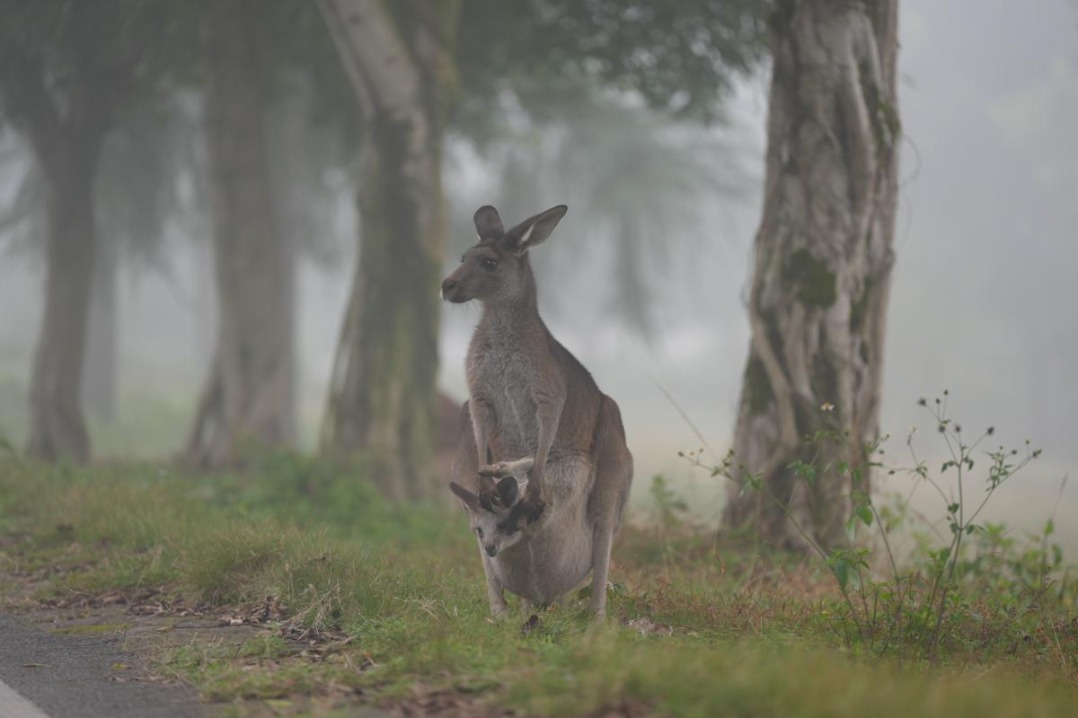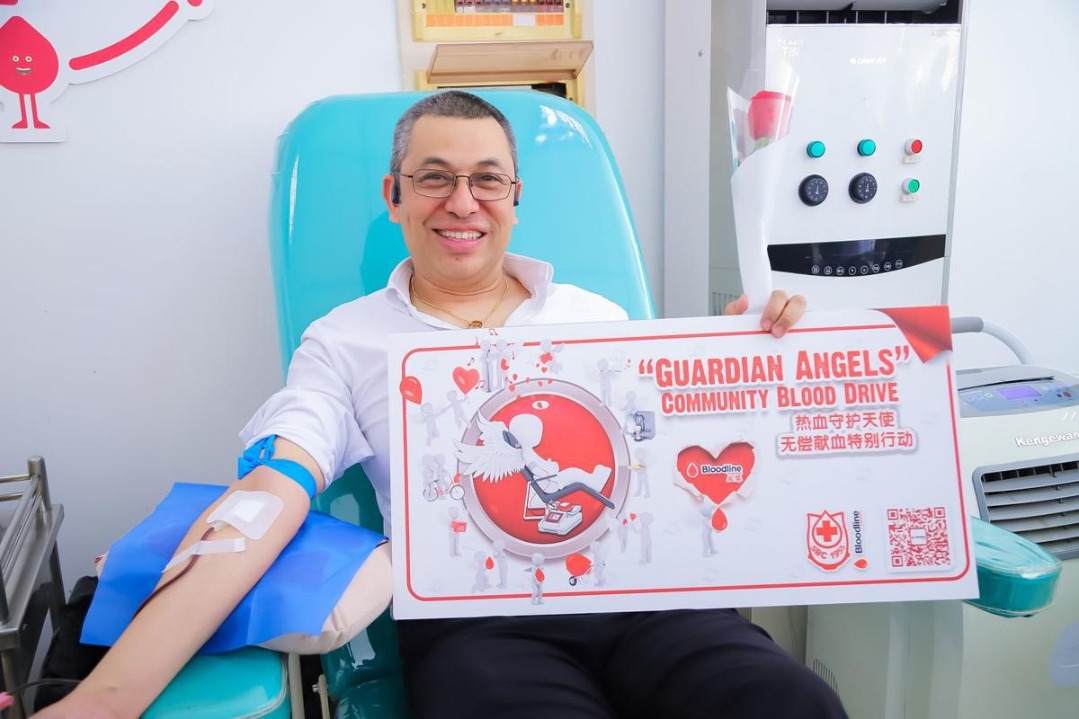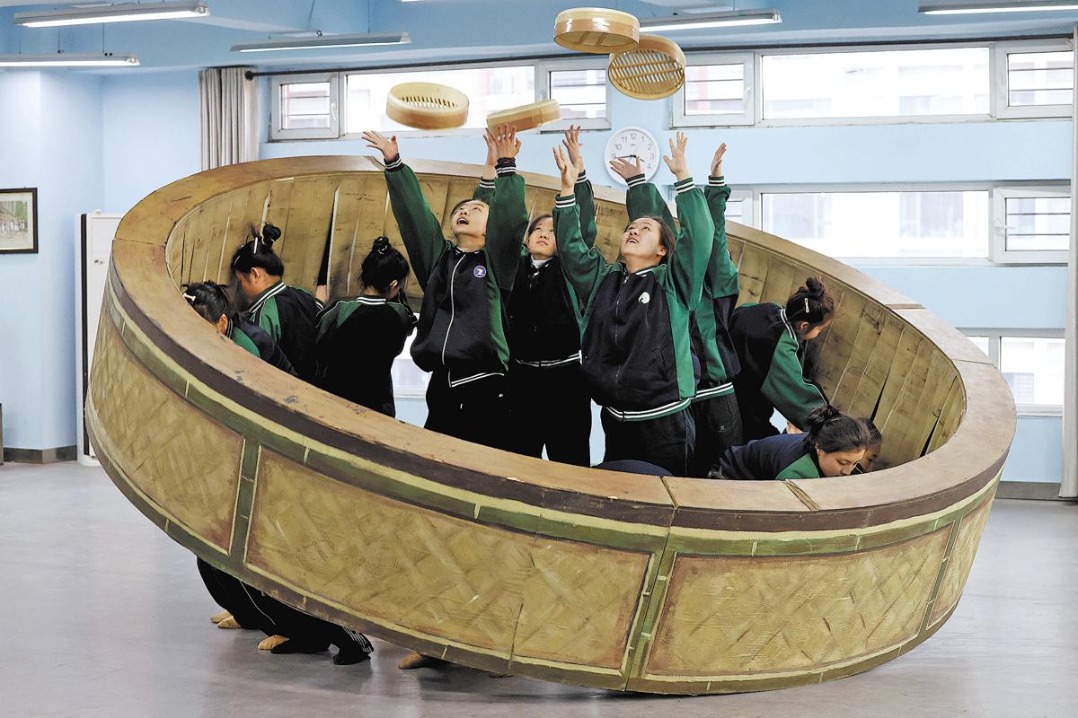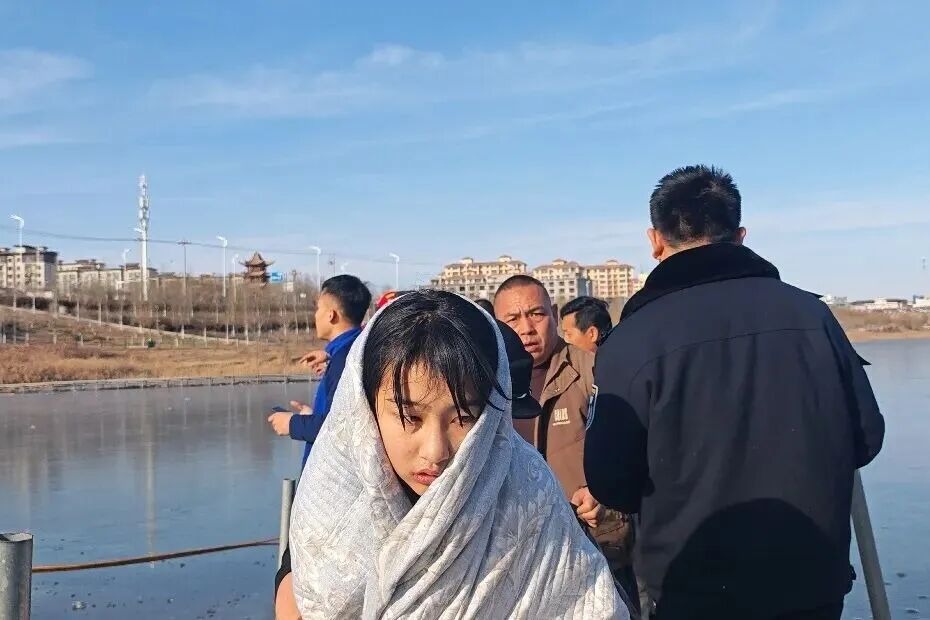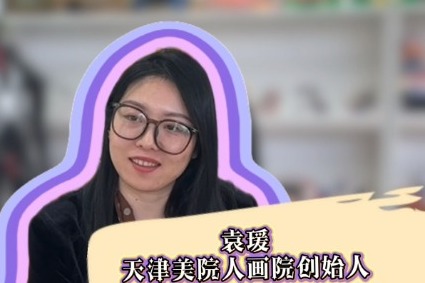TCM sees paw-sitive prospects among pet owners

A short video of a drooling golden retriever with squinting eyes and an array of "thorny" needles on its nose went viral recently on social media.
The needles were acupuncture pins, and according to the vet in the video, the dog was receiving the traditional treatment to alleviate symptoms of facial paralysis.
The video has sparked curiosity about the use of traditional Chinese medicine for cats and dogs.
Although it may seem novel to many, the traditional method for treating animal illnesses, including paralysis, is far from new, and the practice even has its own name — traditional Chinese veterinary medicine, or TCVM.
Hu Yusheng, a TCVM practitioner at China Agricultural University Veterinary Teaching Hospital, diagnoses and treats about 40 pets every Sunday.
The number has kept rising, and so has the complexity of the illnesses.
"Most pet owners who come here have exhausted all other options, and their beloved pets are often referred from some other hospitals with a notice of critical illness," he said.
Hu's fluffy patients recently included a dog suffering from gallstones in the bile duct.
Since the 7-year-old dog had undergone gallbladder removal surgery last year due to a severe rupture, his owner, Sun Jie, decided to explore an alternative to Western medicine to alleviate the symptoms.
Sun said that after a year of acupuncture and herbal medicinal treatment, scans showed that his dog's gallstones had become much smaller.
And the TCVM treatments cost only a fraction of an invasive surgical operation. Regular acupuncture therapy, for example, costs about 300 yuan ($41) each time.
Known for its philosophy of "full life-cycle care", TCVM is popular among China's pet owners for its preventive and therapeutic methods throughout an animal's life.
"I raised Naonao from when she was just an 8-month-old puppy. I loved her just like my own child," said Li Shengwen, who was the owner of a 12-year-old chow chow.
In January last year, when CT scans revealed multiple metastatic tumors in Naonao's abdomen, Li was devastated.
The vets Li consulted recommended euthanasia. Given Naonao's very poor condition, it was highly likely she would not survive surgery. However, without intervention, her illness could deteriorate at any moment and lead to her death.
Overwhelmed by grief, Li sought help from Hu's clinic, hoping Naonao could live as fully and comfortably as possible in her final days.
After a month of acupuncture and herbal medicine treatments, Naonao's appetite improved and her condition began to get better.
"Naonao could bark, run after me, and interact with guests at home — just as energetic as a normal dog!" Li said.
Though Hu could not save her, Naonao lived her last eight months with quality and dignity.
TCVM adopts a holistic approach to wellness and disease treatment. Like TCM, it uses four diagnostic methods — inspection, listening and smelling, inquiry and pulse-taking — to identify symptoms and develop tailored therapies.
Through the integration of new technologies into TCM, innovations such as electro-acupuncture and laser therapy have been introduced into TCVM to better meet the animals' needs.
As China's pet economy booms, TCVM is emerging as a valuable complement to Western medicine in animal care and treatment. Chinese cities were home to over 120 million pet dogs and cats last year, according to petdata.cn.
"Individualized treatments are in great demand for pets, which is exactly what TCVM treatments offer," said Fan Kai, an associate professor of the College of Veterinary Medicine at China Agricultural University.
Hu said: "Pet owners showed their preference by gravitating toward this service. Last year, about one in every eight cases handled by our hospital sought TCVM treatments at some point."
Despite the growing popularity, there is a dire shortage of TCVM professionals in China. Only a handful of colleges offer undergraduate majors related to traditional Chinese veterinary medicine, and they enroll about 200 students a year.
To bridge the gap, the Ministry of Education has mandated compulsory courses in TCVM for all veterinary medicine students and launched TCVM courses online on a national vocational education platform.
"TCVM carries the fine traditional culture of the Chinese nation," Hu said. "I believe it will have a brighter future and be even more popular domestically and globally."
Xinhua















